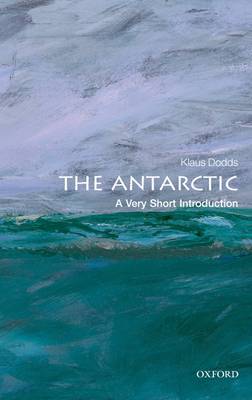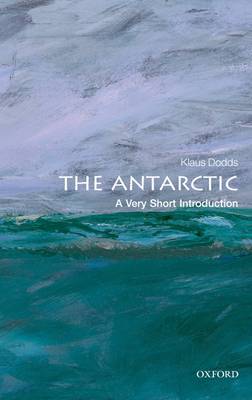
- Afhalen na 1 uur in een winkel met voorraad
- Gratis thuislevering in België vanaf € 30
- Ruim aanbod met 7 miljoen producten
- Afhalen na 1 uur in een winkel met voorraad
- Gratis thuislevering in België vanaf € 30
- Ruim aanbod met 7 miljoen producten
Zoeken
Omschrijving
The Antarctic is one the most hostile natural environments in the world, an extraordinary physical space which changes significantly in shape and size with the passing of the seasons. In this Very Short Introduction, Klaus Dodds provides an up-to-date account of Antarctica, highlighting the main issues facing the continent today. The book sheds light on the scientific, historical, cultural, and political significance of one of the world's most remote regions, providing the background to the physical geography of the continent. Politically, it is unique as it contains one of the few areas of continental space not claimed by any nation-state. Scientifically, the continental ice sheet has provided us with vital evidence about the Earth's past climate. Looking at how the Antarctic has been explored and represented in the last hundred years, Dodds considers the main exploratory and scientific achievements of the region. In addition, he explains how processes such as globalization mean that the Antarctic is increasingly involved in a wider circuit of ideas, goods, people, trade, and governance--all of which have an impact on the future of the region.
Specificaties
Betrokkenen
- Auteur(s):
- Uitgeverij:
Inhoud
- Aantal bladzijden:
- 160
- Taal:
- Engels
- Reeks:
- Reeksnummer:
- nr. 323
Eigenschappen
- Productcode (EAN):
- 9780199697687
- Verschijningsdatum:
- 7/09/2012
- Uitvoering:
- Paperback
- Formaat:
- Trade paperback (VS)
- Afmetingen:
- 107 mm x 170 mm
- Gewicht:
- 113 g

Alleen bij Standaard Boekhandel
+ 27 punten op je klantenkaart van Standaard Boekhandel
Beoordelingen
We publiceren alleen reviews die voldoen aan de voorwaarden voor reviews. Bekijk onze voorwaarden voor reviews.








